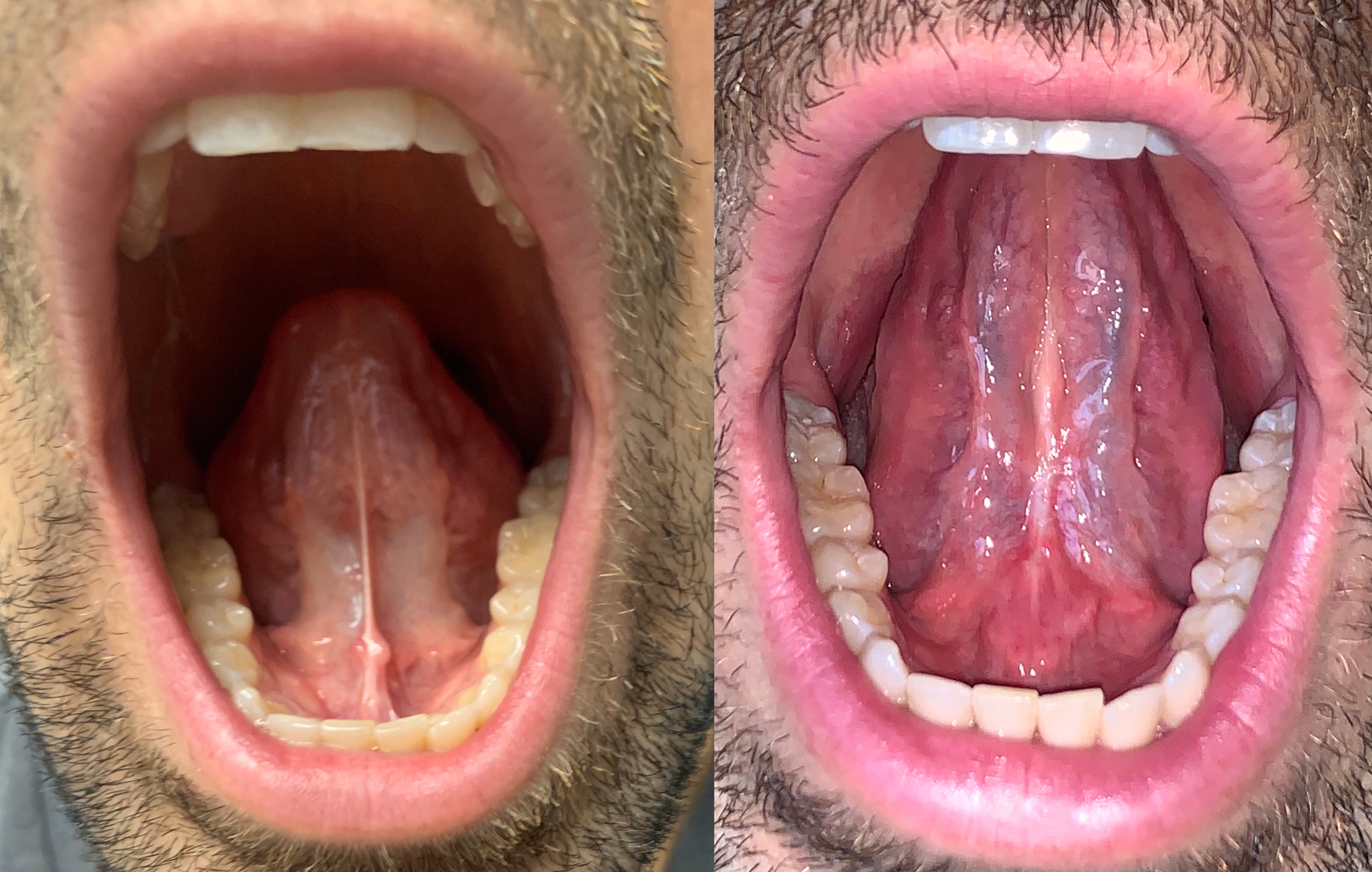Tongue Tie Release
A tongue tie is a condition where the tissue beneath the tongue restricts its movement. Tongue ties can impact a person’s overall quality of life by affecting essential functions such as speech, eating, and oral hygiene.
A tongue tie may influence the development of the jaw and facial structures which can impact the size and shape of the airway, potentially leading to airway constriction. Patients with tongue ties often have constricted nasal breathing resulting in mouth breathing and/or developing sleep disorders. A restricted tongue can lead to a collapse of the soft tissues in the throat during sleep, partially or fully blocking the airway, resulting in breathing disturbances, snoring, and fragmented sleep.

Benefits to Treatment:
- Reduced snoring and improved sleep: Patients can experience a reduction or elimination of snoring after tongue tie release along with less obstructions or restrictions in breathing during sleep, improving quality of sleep and quality of life.
- Reduced muscle discomfort: Patients may experience less TMJ discomfort, clenching, grinding, headaches as well as head and neck tension.
- Improved Function: Releasing a tongue tie can lead to better tongue movement, swallowing, chewing, speech, and overall oral function.
- Enhanced Nasal Breathing: Breathing primarily through your nose improves oxygen uptake, filters and humidifies incoming air, reduces the risk of respiratory problems, and promotes better overall health
- Enhanced Oral Hygiene: Better tongue movement allows for improved cleaning of the mouth, reducing the risk of dental issues such as cavities and gum disease.
Related Treatments:
- Airway Consultation & Assessment
- Clenching & Grinding Treatments
- Myofunctional Therapy
- Palatal Expansion (Custom Oral Appliances)
- Advanced Laser Dentistry with the Fotona Lightwalker Laser
- MyoMunchee and MyoBrace
- Clear aligner therapy
- Adult Airway Treatment
- Pediatric Airway Treatment
- Poor Sleep
